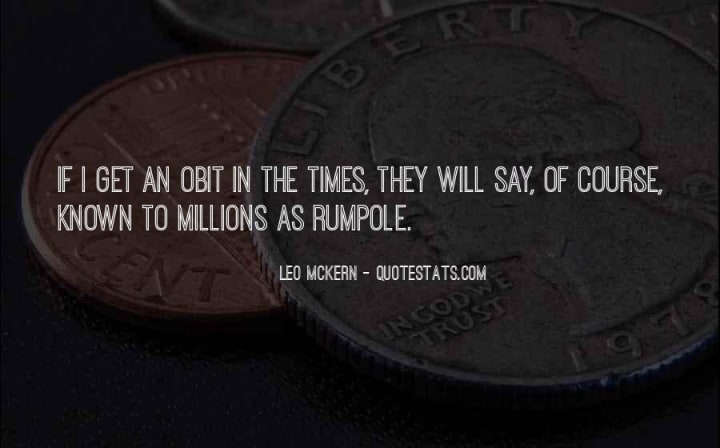Rumpole and My Unfair Thoughts
A Look at the Old Bailey's Finest

It has been said that you can lie all you want in non-fiction, especially in the autobiographical form, but that it is impossible to lie in fiction. This has been an interesting contradiction that allows the reader to learn a great deal about certain writers that those authors may prefer to keep hidden in their own thoughts, not exposed on the bare page. And with this thought in mind, I want to talk about Rumpole of the Bailey.
The author John Mortimer (1923 – 2009) was a barrister in England who did not have as great an interest in points of law as his colleagues, but he did have an interest in telling the story of one of the most interesting characters in modern fiction: Horace Rumpole. He has become the lawyer of all lawyers to certain fans of British fiction and forever associated with Mortimer and the actor Leo McKern (1920 – 2002) who starred as the title character.

I still wonder how I first found out about the beloved Rumpole. There were no readers or fans in my early years of watching British comedies (my years were devoted to classic Doctor Who and the occasional film of Monty Python). There was no one I went to school with who knew or read the books. Perhaps it was not until I was overseas and working as a teacher that I met a man who carried with him many of the novels, including The Rumpole Omnibus that I often saw him paging through on breaks . And still, I had no interest in it. I was immune to the British murder mystery, at least on the page, and comedy was something best watched and enjoyed on the screen. Rumpole was a combination of both elements in certain passages. So, I was in my own world, Rumpoleless…
…Until this year. After a long period of not working and surviving Covid restrictions and masking and sanitizing anything and everything I could, I was prepared to try something else. And at the local library, I found Rumpole of the Bailey, the first book of the series, and the only one that have so far read. One big surprise to me was that the book did not come out until 1980, well into the years of Thatcher and Reagan. There was just something about the book that made me imagine that it was written several years earlier. And it does look back at the cases that made Horace Rumpole famous among the other barristers and lawyers of the Old Bailey, London’s famous court and the setting of most of the stories. And this is why I was again so surprised by the books. Apart from my imagined belief that the book would be much older and with even more obscure terms and language than I suspected, I did not expect it to have such a long seam of sadness underneath it all. The books are written as comedies to hide what may be the tears that cannot be shared on the page.
Let’s start with his name.
Horace Rumpole… I see the name Horace and I think of the great Roman writer (65 BCE – 8 BCE), a war veteran on the wrong side of the Battle of Philippi (Marc Antony and Octavian won that one, defeating the infamous Brutus), creator of his famous “Epistles”, “Satires”, “Ars Poetica” and of the phrase “carpe diem” (seize the day). He is also believed to be one of the first autobiographers to ever live.
So, how does this tie in to the Bailey’s best?
Rumpole seems to be a man who has seen and absorbed a great deal in life beyond the dusty halls of a courtroom. He is truly a loner, never more so than when he is with colleagues named Claude Erskine-Brown, Phillida Trant, and, most especially, Hilda, the terrifying and suspicious wife known as She Who Must Be Obeyed (dear reader, fill in the blanks and imagine what their lives, characters, and relationships must be like). He is out of step and out of time, just as England is moving from an empire to…what?
A very difficult question and one that I cannot answer here. Rumpole’s love of poetry and constant recitation of it at inappropriate moments is quite touching – he is partial to Wordsworth, Keats and, when necessary, Byron – and quite sad. As I said, I could not ignore the tears behind the humour (the best comics have the saddest lives, it is said), and I wonder if other fans out there also feel the same. He is in a long line of fictional characters in English literature, from Sherlock Holmes through Harry Potter, who must work alone, try to make the world a better place, and never seem to find any real joy in their lives. Maybe I am pushing things here, but I have to wonder if any of you out there noticed the laughter covering a greater sadness.

Thank you for reading!
If you liked this, you can add your Insights, Comment, leave a Heart, Tip, Pledge, or Subscribe. I will appreciate any support you have shown for my work.
You can find more poems, stories, and articles by Kendall Defoe on my Vocal profile. I complain, argue, provoke and create...just like everybody else.
Give it a look...
About the Creator
Kendall Defoe
Teacher, reader, writer, dreamer... I am a college instructor who cannot stop letting his thoughts end up on the page.
And I did this: Buy Me A Coffee... And I did this:






Comments
There are no comments for this story
Be the first to respond and start the conversation.